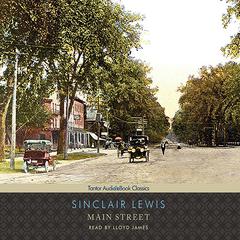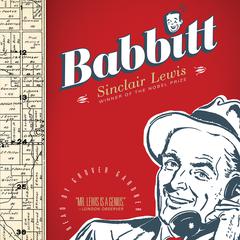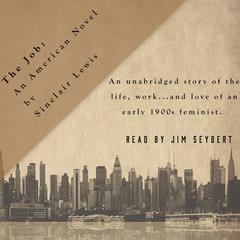 Play Audiobook Sample
Play Audiobook Sample
It Can’t Happen Here Audiobook
 Play Audiobook Sample
Play Audiobook Sample
Quick Stats About this Audiobook
Total Audiobook Chapters:
Longest Chapter Length:
Shortest Chapter Length:
Average Chapter Length:
Audiobooks by this Author:
Publisher Description
First published in 1935, when Americans were still largely oblivious to the rise of Hitler in Europe, this prescient novel tells a cautionary tale about the fragility of democracy and offers an alarming, eerily timeless look at how fascism could take hold in America.
Doremus Jessup, a newspaper editor, is dismayed to find that many of the people he knows support presidential candidate Berzelius Windrip. The suspiciously fascist Windrip is offering to save the nation from sex, crime, welfare cheats, and a liberal press. But after Windrip wins the election, dissent soon becomes dangerous for Jessup. Windrip forcibly gains control of Congress and the Supreme Court and, with the aid of his personal paramilitary storm troopers, turns the United States into a totalitarian state.
Download and start listening now!
"This was such a big and positive surprise. Bought in a bookstore in Kiev, Ukraine, amongst very few English language options. But on my way out of the Ukraine, I was already captivated by the novel. It is so well put on the back of the book: "It really didn't take much to kill democracy in America...". At least for any American (but basically any complacent person), this should be required reading."
— Corné (4 out of 5 stars)
Quotes
-
“One of the most important books ever produced in this country.”
— New Yorker -
“This audio version of the Sinclair Lewis classic keeps listeners riveted to Grover Gardner’s restrained yet powerful delivery. The 1935 novel, which predicts a dystopian future, is truly crafted for listening. Gardner is masterful at bringing listeners into the workings of protagonist Doremus Jessup’s worried mind.”
— AudioFile -
“Written at white heat.”
— Chicago Tribune -
“The novel that foreshadowed Donald Trump’s authoritarian appeal.”
— Salon -
“A message to thinking Americans.”
— Springfield Republican -
“Lewis imagined the rise of a populist figure by the name of Buzz Windrip who rallies to defeat FDR in the 1936 election…Windrip loves big, passionate rallies and rails against the ‘lies of the mainstream press.’”
— Time -
“A cautionary tale about the fragility of democracy…It Can’t Happen Here remains uniquely important, a shockingly prescient novel that’s as fresh and contemporary as today’s news.”
— Library Journal (starred review)
Awards
-
An NPR Pick for What Do Contested Conventions Look Like?
-
An Amazon.com Bestseller
-
An Audible.com bestseller
-
A #1 Time Magazine Pick of 8 Books That Eerily Predicted the Future
-
A Washington Post Pick of Books That Predicted Our Current Reality
It Can’t Happen Here Listener Reviews
- — pat, 12/27/2019
- — Nicholas Ronco, 11/13/2018
-
" Message received. Over dramatized and accelerated but worth reading. I believe I am a bit of an early D. Jessup only in that I think I self justify my own political inaction in similar ways. It will take more than this hastily written work to nudge me from that. I did enjoy it. "
— Jacob, 2/19/2014 -
" 1930s political satire that seems all too possible today. "
— Algot, 2/16/2014 -
" This is the story of a fascist America. It is frightening, horrifying, and a terribly good read if you can handle some of the violence. "
— Jessica, 2/14/2014 -
" The plot and characters are not especially interesting, but the insights in American political culture are brilliant and as relevant as ever. "
— Liv, 2/10/2014 -
" Very interesting book - what is amazing is that a lot of what the author writes about in 1935 actually happens in Germany leading up to and during WWII. It's a typical book of this time period, lots of extra words to get to a point, but good nonetheless! "
— Karoline, 1/21/2014 -
" Read this after Ron Paul mentioned that Huckabee was like Sinclair's character where fascism will come riding in draped in a flag and carrying a cross. Had to read the reference book for this. Hard to read, but good story. "
— Jon, 1/19/2014 -
" This is, by far, the best dystopia I have ever read, though it started off rather boring. It's more realistic and relevant to American life and history than any other dystopia, and therefore more chilling. "
— Susanna, 1/15/2014 -
" Prescient (written in 1935) and a little scary given today's political climate. "
— Sam, 11/30/2013 -
" Funny how little things really change, contrary to our perceptions. "
— Jack, 11/26/2013 -
" For 1935, the book shows a very clear understanding of Nazi politics. "
— Benjamin, 11/19/2013 -
" Scary in it's relevance. "
— Pam, 10/25/2013 -
" It Can't Happen Here is a distopian novel about a right-wing takeover of the United States. Though written in the 1930s, Lewis (who called his reactionary stalwarts "Minutemen") seems to have anticipated the Teac Party movement in 2010. "
— Pete, 3/6/2013 -
" Excellent! Some things never seem to change, including people and politics. "
— Jim, 1/31/2013 -
" Witty, inventive and frightening story, where the good old New England gradually turns into a concentration camp. A fine example of political satire. "
— Eva, 12/29/2012 -
" An excellent book about how fascism could have risen in the US in 1936. Spookily familiar to the current political climate. "
— Jeffrey, 10/11/2012 -
" OMG!! Every thinking person should read this. Plot and story constructing could be a little thin at times but the writing is brilliant and the content is just as relevant today as it was 90 years ago. "
— Lizzie, 5/10/2012 -
" Good story, but cannot get into the book. Very wordy. "
— Lori, 10/18/2011 -
" While it's not as great as his other famous works and the plot is a bit of a mess, Lewis manages to create a creepy, paranoid fascist American state that isn't exactly made up out of whole cloth. He could see it happening, and to some degree, it has - though so much more benignly. "
— Karla, 5/4/2011 -
" I thoroughly enjoyed this. The fact it was written in the early 1930's makes it that much better. It's easy for us to look back and see how the Nazi's came to power. Lewis was able to look forward and see it. "
— Justin, 4/5/2011 -
" This is an important book because it shows how it can happen. I gave it three stars because the writing was not as good as I would have expected from Sinclair Lewis. "
— Ginni, 3/7/2011 -
" ISBN-10: 045121658X<br/><br/><br/>It might remind you of Bush, Cheney, Lott, Greenspan, Summers, etc. I also might remind you of yourself. "
— Call, 1/13/2011 -
" Read this book in 2008. I would read it again. "
— Louise, 12/30/2010 -
" Funny how little things really change, contrary to our perceptions. "
— Jack, 11/6/2010 -
" Subject matter: good. Literary quality: bad. "
— Caroline, 10/29/2010 -
" It Can't Happen Here is a distopian novel about a right-wing takeover of the United States. Though written in the 1930s, Lewis (who called his reactionary stalwarts "Minutemen") seems to have anticipated the Teac Party movement in 2010. "
— Pete, 9/17/2010 -
" "When fascism comes to America, it will be wrapped in a flag and carrying a cross." <br/> <br/>Read "It Can't Happen Here" with Chris Hedges no essay The World Liberal Opportunists Made and you seek amerikka kin 5 years. <br/> <br/>I can't recommend this enough. "
— Marley, 7/30/2010 -
" This is, by far, the best dystopia I have ever read, though it started off rather boring. It's more realistic and relevant to American life and history than any other dystopia, and therefore more chilling. "
— Susanna, 7/20/2010 -
" Much as I love 1984, Orwell has certainly read this one before writing it. Amazingly, was written in 1935. <br/>Author is a Nobel Prize recipient. "
— Drora, 7/18/2010
About Sinclair Lewis
Harry Sinclair Lewis (1885–1951), the son of a country doctor, was born in Sauk Centre, Minnesota. He attended Yale University, where he was editor of the literary magazine, and graduated in 1907. After a few of his stories had appeared in magazines and his first novel, Our Mr. Wrenn (1914), had been published, he was able to write full time. He was awarded the 1926 Pulitzer Prize for Arrowsmith (1925) but refused to accept the honor. However, he accepted the Nobel Prize awarded him in 1930. He was the first American to win the Nobel Prize for Literature.
About Grover Gardner
Grover Gardner (a.k.a. Tom Parker) is an award-winning narrator with over a thousand titles to his credit. Named one of the “Best Voices of the Century” and a Golden Voice by AudioFile magazine, he has won three prestigious Audie Awards, was chosen Narrator of the Year for 2005 by Publishers Weekly, and has earned more than thirty Earphones Awards.




































